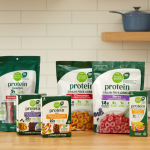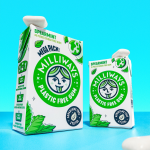Munk Pack Raises $5M to Accelerate Distribution; Finds ‘Sweet Spot’ in the Bar Set
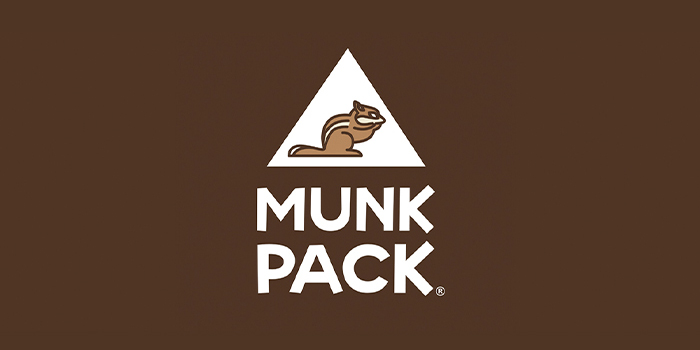
Greenwich, Connecticut-based snack brand Munk Pack announced last week it closed a $5 million funding round led by an undisclosed private investor.
In search of portable, low-sugar snacks, husband and wife Tobias and Michelle Glienke founded Munk Pack in 2013. The brand currently produces a portfolio of keto granola bars, keto nut and seed bars and protein cookies. The granola bars, nut and seed bars and protein cookies are sold online in 12-pack single-flavor boxes or 6-pack variety boxes for $23.99 to $24.99. In brick-and-mortar retailers, the granola bars are offered in 4-pack boxes for $6.99 while the nut and seed bars are offered individually for $2.29.
The new capital will be invested in distribution growth, according to the company, as well as expansion of its team and “continued innovation” in the bar category.
Munk Pack hit the market with oatmeal squeeze pouches in 2015. However, consumers’ unfamiliarity with the format limited opportunities for growth to the natural channel. Protein cookies came next in 2017, right as protein-enhanced snack brand Lenny & Larry’s was acquired by Lion Capital. At the time, Michelle told NOSH the company chose cookies as its second product line due to consumer demand for high calorie, high protein snacks and it fit Munk Pack’s message of healthy eating on the go.
Shifting gears, in 2019 Tobias and Michelle entered the already saturated bar category with what they believed was a product that could bridge the existing gap between low sugar and flavor.
“It’s a really competitive space, but it is still a space where you have a lot of not-so-great-tasting products, especially in the low sugar arena,” Tobias told NOSH. “Nutrition is great, we check that mark…after all, taste is king and [what] consumers are looking for.”
Munk Pack’s grain-free, plant-based bars feature ingredients like almonds, coconut, flax seeds, peanut butter and pumpkin seeds. Each bar contains 1g of sugar or less, 2 to 4 grams of net carbohydrates and no sugar alcohols, and uses allulose as a sweetener. Although Munk Pack’s entire bar lineup is keto-friendly and is loudly called out on its packaging, Tobias says it is not the driving factor in its business.
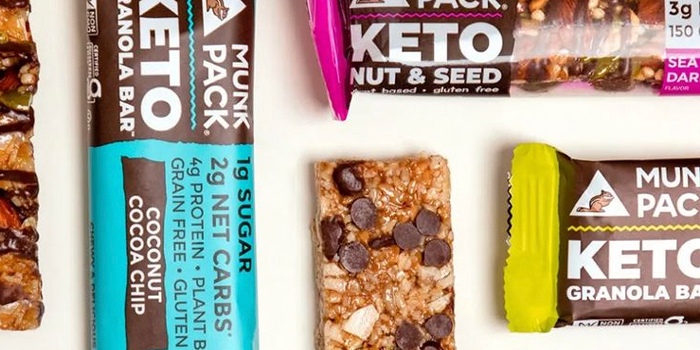
Having discovered its ‘sweet spot’ in the bar category, Munk Pack says its top SKUs consistently rank in the top 10-20% by $/TDP of natural bars. In the 52 weeks ending on June 12, 2022, the snack bar and granola bar category brought in more than $102 million, a 31.8% increase over the previous year, according to IRI data.
“We are pleased to see our products resonating with such a broad consumer base, and we believe that our simultaneous distribution and velocity increases attest to that,” said Tobias Glienke in the release.
Munk Pack plans to use the capital to capitalize on its current momentum by building out its sales team and operations staff to meet increased demand. The brand’s website accounts for less than 10% of its sales, according to Tobias, while the rest comes from Amazon and in-store. In the past year, Munk Pack’s staff has more than doubled from six to 13-14, recently hiring a VP of sales. The company is now looking to bring on directors of sales.
The brand’s products are currently available in more than 19,000 points of distribution nationwide, including Sprouts, Kroger and Meijer. Most recently, the brand completed its second expansion with Walmart, which added 4,427 more locations.
Despite its current focus on bars, the brand told NOSH that cutting back on or eliminating its protein cookie offerings “is not the focus right now.”
“We just closed this round. We’ll see what we do in the future but right now, we’ve satisfied our capital needs,” said Tobias. “That being said, it’s always fluid in a sense and we’re open to partnerships that have a strategic value.”

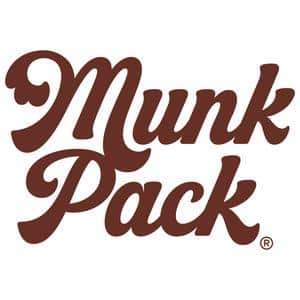
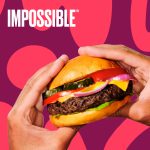
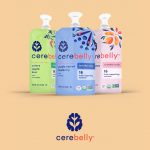
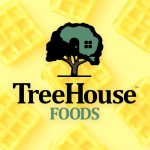










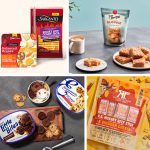
![[Updated] Oats Overnights Secures $45M Investment From Astō](https://d2azl42aua8mom.cloudfront.net/wp-content/uploads/2026/01/29172259/2026-01-29-oats-overnights-secures-45m-in-growth-equity-from-square-150x150.jpg)
